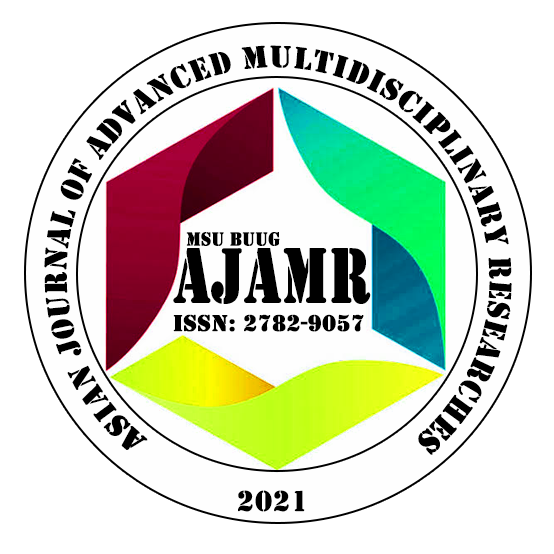

Author: 1Gani Olarte, 2Richelle A. Tabora, 3Mary Jee P. San Nicolas, 4Ivy F. Amante
Mindanao State University Buug Campus, Datu Panas, Buug, Zamboanga Sibugay, Philippines.
Email: 1wattwatchman7@gmail.com, 2richelletabora29@gmail.com, 3maryjeesannicolas3197@gmail.com, 4ivy.amante@msubuug.edu.ph
ABSTRACT
Conflict is the agon, or the central contest in tragedy and one that holds interests to readers of literature. This study aims to investigate the
conflicts embedded in the lyrics of the selected Original Pinoy Music (OPM) songs, ignite appreciation for Filipino music, and unravel its
significance in areas of literary study and improving human life experiences. The purpose of the study is to discover the external and internal
conflicts experienced by the characters, the conflicts’ effect to them, the characters’ reactions to the conflicts and the messages they bore.
These OPM songs namely “Tukso”, “Napakasakit Kuya Eddie”, “Hagdan”, “Buloy”, “Hari ng Tondo”, “Isang Linggong Pag-ibig”, “Sirena”
“Estudyante Blues”, “Dukha”, “Namumuro Ka Na”, “Basang-basa Sa Ulan”, and “Bakit Ba” were critically analyzed through the use of descriptive qualitative method confined in the psychoanalytic literary, formalism, and sociocultural theories. The findings of the study unveils
that the external conflict revolves around abuse, poverty, rejection, temptations, vices and crime. It further revealed the instances of internal
conflicts which revolve around fear, pain, loneliness, emptiness, desperation, self-pity, regrets, confusion, doubt and unhappiness. It was
found that the characters are challenged by these conflicts, arose above it and others are transformed into better individuals. Although other
songs are left hanging, with researchers offering logical resolves of anticipation and futuristic view, this study substantially presents the conflicts embedded in the OPM songs and some ways to resolving it. Therefore, this study holds its contribution not only in literary study but
also in real life application.
Keywords: Conflict, songs, internal, external